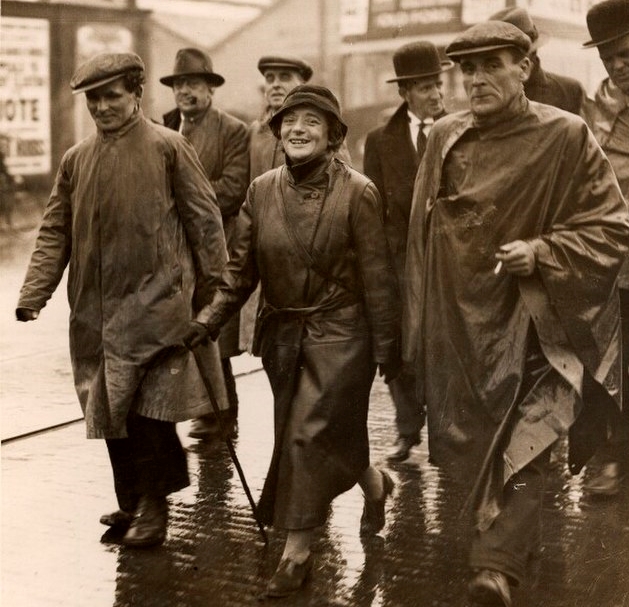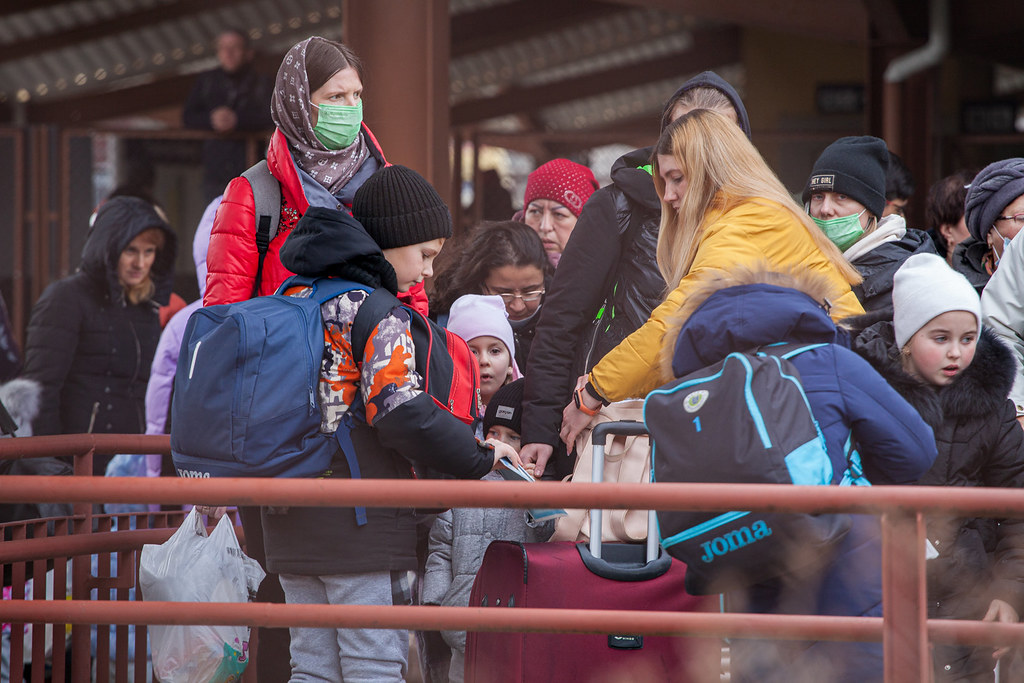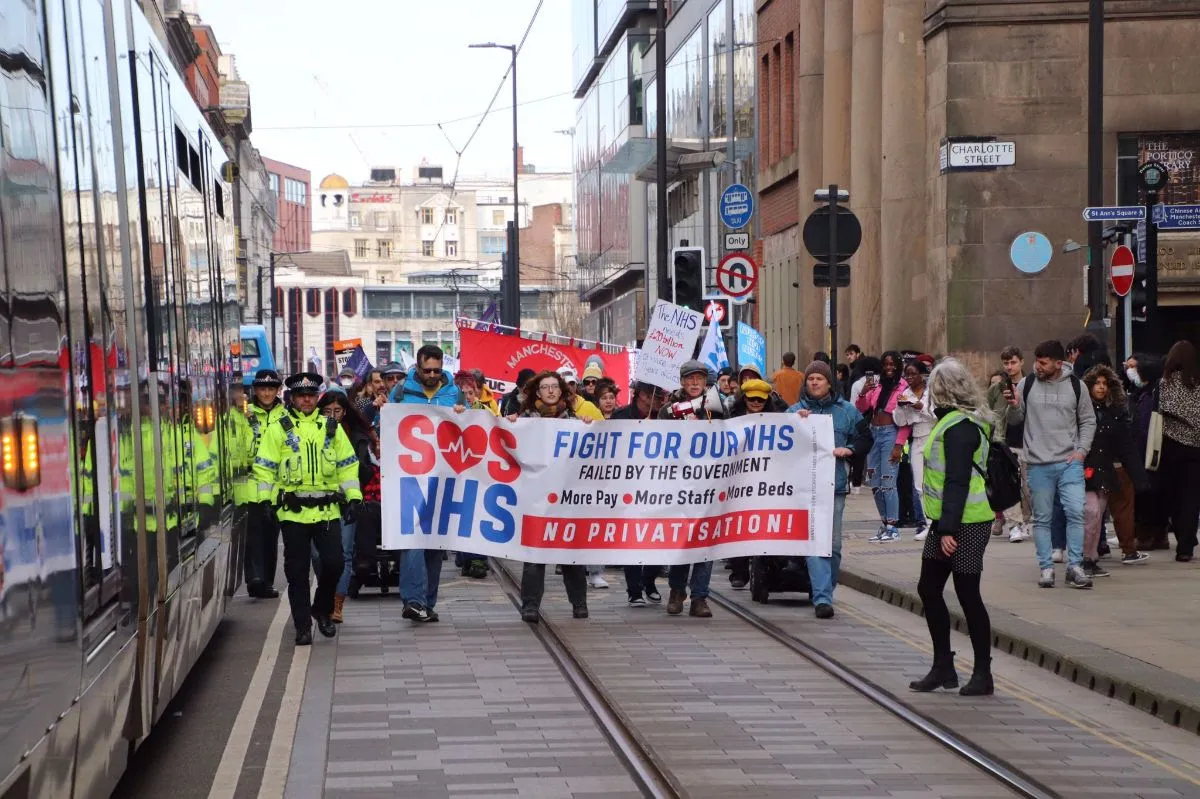A US defector to the GDR in the 1950s reveals all about life in the GDR, the sacrifices of being in power and the future of the LINKE party in Germany after the 2021 elections.
Hi Victor, thanks for speaking to us. Before we talk about your Berlin bulletin, could you say a few words about who you are? How did a US-American end up on the Karl-Marx Allee?
I grew up in New York in the late 1930s when the depression was still on. I was what they called a red diaper baby. After Harvard I went into a factory to work, to be part of the trade union movement.
Then I got drafted during the Korean War (1950-53). This meant signing a statement saying that I’d never been in any of a whole long list of left wing organisations. I’d been in about a dozen of them. A relatively new law said that you were obliged to register as a foreign agent with the police. If you didn’t register, you could be sentenced up to a $10,000 fine and five years in prison for every day you didn’t register.
The law was already six months old and I hadn’t registered. Nobody registered under this stupid law, which was ruled unconstitutional 10 years later. I didn’t know if I should sign. But I decided I’d make myself a criminal either way. So I signed that thing and hoped they wouldn’t catch up with me.
I was lucky – I was not sent to Korea but to Bavaria. The authorities did catch up with me and they ordered me to report to the military judge and that there was a possible penalty of up to five years prison. I decided the only thing to do was to defect. That was 1952 during the Korean War.
Let’s move onto your Berlin bulletin – last week you published the 200th Bulletin. For people who don’t know it, what is the Berlin bulletin and who is it written for?
I publish the bulletin roughly once a month. It’s usually a three page essay on developments mostly in Germany. Most of the readers are in the United States, but I have readers in several dozen countries around the world. But the main readership is in the United States, people who want to keep up with German events because they’re very important.
Reports on Germany in the US are one sided and usually rather thin. I try to supply something which is readable and from a Left-Wing point of view. Not too stiff and not too hard line or dogmatic, but still from my point of view.
Why do people need an analysis about what’s happening in Germany?
Very few Americans, even those on the left, know about developments here – either in the GDR days or in the present. They find it interesting, especially in connection with the Left Party, die LINKE, because the United States has no major left party – just the Democrats and Republicans. They are curious as to what that involved here and what influence the left wing has here.
Germany is, after all, the most important country in Europe, if you exclude Russia. What it does and what it says is important for world politics.
You lived over 30 years in the GDR and have now lived over 30 years in reunified Germany. What are the big differences between then and now?
When I first came to the GDR, the social advantages were remarkable, especially medical. Everything was covered – prescription drugs, twice I had four week cures for my hepatitis, all expenses paid, 90 percent of my pay. My two sons were born. My wife got six and eight weeks, later it became half a year off, with every expense paid, including the taxi to get to the maternity ward. This was impressive to me.
Working at my first job was in a factory in the South of the GDR, nobody was worried about their financial future, because you couldn’t be fired unless you hit a boss over the head with a crowbar. People were not afraid.
Then came the question of education. You not only had free education, but you got enough to live on. I went to college for years in Leipzig. None of the students had to work alongside their studies, nor did they have a debt when they finished.
Of course, West Germany was also far ahead of the United States, but not ahead of the GDR on most of these questions. For example, abortions were free of charge in the GDR, as well as childcare and cheap holidays.
The GDR always had enough to eat, enough to wear, but much more limited that the West in terms of fashions and luxury goods. There was lots of fruit, but the kind that grew here, not from South America or Africa or someplace.
When I passed a new building in the GDR days, I felt that it partly belongs to me, even if I wasn’t going to live there. Since unification, when I go past a construction site, my tendency is to think, who’s making money on this?
Another difference was that in GDR days if you were smart, you didn’t criticize the party or Honecker, the party boss. But you had no compunctions about talking back to your foreman or the manager. Today it’s the other way around. You can say anything you want about Chancellor Kohl or whoever, but you better not talk back about your foreman or manager.
For all this, I would guess that if you ask people in the West for one word that they associate with the GDR, 90 percent will say Stasi. How fair is that?
It’s true that lots of people worked for the Stasi, both paid and unpaid. Check-ups were made all the time about people visiting the West. They wouldn’t check pensioners, who could go every year, but people going for delegations or concerts. Once they got there, they would be not only asked lots of questions, but often lured to stay and not come back.
There was also an eye kept on people dealing with Western people, plus anything which seemed to be in any way oppositional. Any kind of organization which wasn’t really organized from above was suspected as a possible base of opposition because the GDR was naturally full of people who were looking to the West. People had their brothers, their cousins, their aunts and uncles there.
Every evening they could see on television how beautiful and wonderful life was in the West. They made a point to get across how they have all of those things, which we don’t have. I saw that there was a constant counter-current going on in the GDR.
About 15-20% were for the GDR, about 15-20% were very much against it, and all the rest vacillated. They figured, they could live better over there in some ways, but here we had enough to eat, we had enough to drink – we lived well enough. We have a nice little bungalow where we could go in the summer and grill and maybe even have a little swimming pool of our own. What the hell? We could be satisfied in the GDR.
This attitude varied. If GDR citizens were lucky enough to get a new car, they’d been waiting for a long time, they would be more in favour of the regime. If they had an argument with a boss, or didn’t get some bonus, then they would turn against it. It was a back and forth, but towards the end, in the 1980s when the economy went downhill, a lot of those people in the middle turned against the GDR authorities.
The Stasi was there to measure what people were saying and thinking and also to stop any possible plans for any kind of opposition whatsoever. However, I also knew that in the United States, while they didn’t have as many people proportionately in the FBI, they had plenty.
Under the Freedom of Information Act, I got 1100 pages of FBI reports on remarks I had made at a picnic and how much money I had given our newspaper as a contribution. They had so much on me and not only on me. I was a nobody, really. I saw it more critically because of my personal experiences. I came from the United States during the so-called McCarthy era, where any left wing Senate sentiments were repressed.
People were in jail. The whole leadership of the Left was in jail. The entire leadership of the Communist Party and the next level too. One difference was that in the United States, the main pressures were against people who were fighting against racism, for equal rights for trade unions. Here it was the other way around.
I should add one more point. Everybody knew that the Stasi were all around the place, but people didn’t take it so earnestly as they think in the West from films like The Life of Others. People joked about it. They accepted that, whenever there was a procession down Karl Marx Allee, where I live, every hundred yards or so you saw two men trying to look inconspicuous.
People accepted. some more angrily, especially if they were in opposition, but most people’s said: ‘Naja. They’re there. What the hell do I care?’
Let’s move forward a little bit. You mentioned die LINKE. It’s now 15 years since die LINKE was formed. How important was that moment?
I thought it was very important. Die LINKE, and its predecessor the Party of Democratic Socialism, was basically the only left wing body within parliamentary rule here since 1951. They represented the opposition to the general scheme of government and rule here.
In every field, Germany has some strong monopolies. Most of them had long term roots back in the Nazi years and of using slave labor and supporting Hitler. They basically ruled the roost in West Germany until 1990, and since then they rule all of Germany.
I was therefore happy to see at least one party which basically stood for getting rid of them and to have people not give any of the results of their work to the profits of some wealthy people. This party represented changing the system so that working people got the full value of what they do.
Not only that, but die LINKE was the only party which was consistently against Germany taking part in any foreign wars. Until unification, neither German side had sent soldiers outside the borders. Only after unification did you have German soldiers going to Yugoslavia, bombing Serbia. For me, it was important that die LINKE was one force against mixing into foreign affairs from Afghanistan to Mali.
Six months ago, we had elections. Die LINKE were voted back into the Berlin government but halved its members of the Bundestag. How do you think the project is working out?
It hasn’t worked out. It’s very sad. I forgot to mention that one of the things die LINKE was strongest about was in working and fighting for the rights of working people, whether in terms of wages and hours and conditions, but also in terms of pensions and health for single parents, etc. It was the most consistent. The others vacillated. Die LINKE was a strong opposition.
Somehow, many of the leaders of die LINKE remained more or less in favor of these positions, but restricted their activity far too much to parliamentary speech making, submitting laws which couldn’t be passed because they were too few people supporting them. They were calling for these things, but not fighting for them amongst the people in the cities, towns and villages of the country.
I felt that a true left party, such as the ones I grew up with in the States should be organizing demonstrations, supporting strikes, fighting for the rights of people in all fields and helping people to realize how strong they could be if they worked together and fought together. I thought that the left failed in this,
Being in a coalition was advantageous in terms of money because a party with seats in parliament was subsidized and could have think tanks. They got a better chance to talk on television. And therefore it was seen as an admirable gain. However, this was still a shifty business. You are open to many temptations. It is hard to be in a government, and not to make too many compromises.
One of the best things die LINKE has done was to fight to confiscate the biggest apartment owners in Berlin. Unfortunately, to get into the government in Berlin, this demand has been dropped or put on a low burner. This was a blunder that worries me, and that’s why the left has suffered.
What can we expect from the next German government?
The Social Democrats were at a low point. Hardly a year ago, they were almost disappearing. They came back because they started taking positions that die LINKE had been taking and sounding left. Their main aim was to win the vote, especially of working class people. And they succeeded. This forces them in government to more or less stand for such positions.
The Greens won partly because of their ecology. But they’ve made more and more compromises with the big companies who are not so interested in ecology at all. They are interested in making money. Now they’re also up for building armaments, as are the Social Democrats.
I think that the Left should always be in opposition to that. Whether they will give up this opposition, we’ll see, perhaps in the party Congress in June. I hope that the membership of the Left party are also opposed to Germany getting involved in foreign wars and expanding economically with big business, militarily or politically.
If we push policies to get people organized to fight for their own rights, then the left has possibilities of growing again in a healthy way. If, however, they don’t succeed and the party continues to place so much emphasis on winning elections and getting people into cabinet positions, I think they’ll continue to go downhill.
I fear greatly that there may be a party split on such issues. And if it does split, the two sections will both be out of every parliament and will probably be reduced to being minor parties instead of a real force. Until a year ago, they were the main opposition party in parliament. Now they are the weakest opposition party and they could be no opposition party if this split occurs.




